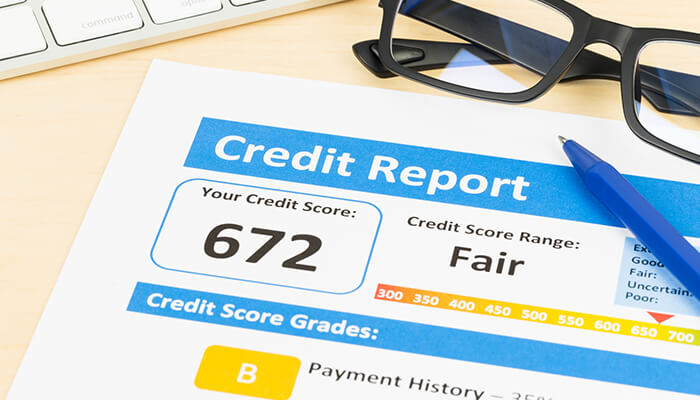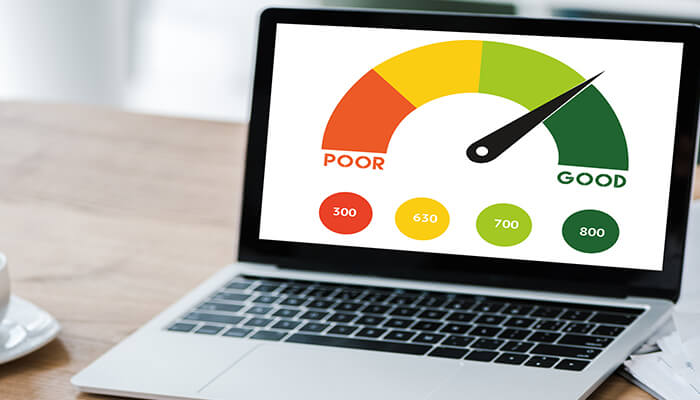A credit report is a collection of financial credit history showing your business’s ability to repay debts. The information is generated from the credit bureau. It can affect how you access credit facilities from creditors or financial institutions.
Aside from presenting your creditworthiness, credit reports communicate your information to lenders. It shows your business ownership, financial position, subsidiaries, and credit score, among other crucial details. So, a solid credit report is imperative to support your loan application or credit card. It’ll put your business in a better position to negotiate for goods and services from creditors.
To achieve a good credit report, you must learn the requirements from creditors. Then have a foolproof bookkeeping system to improve your chances of getting credit facilities. For more insights, you can consult finance professionals or visit online resources such as https://www.softpullsolutions.com/. Are you wondering what a credit report says about your business? Find out below.
1. A Well-established Business Identity
Your business profile is an integral part of the credit report you can’t exclude when looking at creditworthiness. It identifies your business entity by presenting the following:
- Business name
- Year of incorporation
- Owners and directors
- Nature of business
- Number of staff
- Number of subsidiaries
- Years of operation
- Business classification
These are all considerations that creditors want to review before giving your business credit. It enables them to determine if your business is worth the risk.
A low-risk business can access higher credit and insurance to support the application of credit facilities. In addition, they want to confirm that your establishment is legal and categorized in the business tax regime.
2. Credit Accounts Information
Creditors send reports to the credit bureau regarding the transactions and facilities according to your business. It helps to populate the contents of active credit accounts, such as asset financing, under the business name. However, paid or settled accounts don’t appear in the report since they cannot add to your business credit score.
3. Business Has A Good Credit Score
The essence of a credit report is to provide a credit score whether you’re seeking a personal loan or business credit. A credit reporting bureau will give a score by looking at underlying business performance concerning the credit facilities it received from creditors. The credit report is easily understood and within a given range by the regulators.
Aside from credit ratings, the report determines your business’s risk level. It’ll also inform the creditors of the limit that applies to your business. In addition, the report also highlights the credit utilization and the period you repaid the loan.
However, credit reporting bureaus have varying credit score calculations that can affect your business’s access to credit. It’s crucial to learn what criteria they use for your business.
4. A Reliable Commercial Financial History Exists
The commercial financial history presents the remittance your business has been making to the credit facilities. It’s the amount creditors, business lenders, and insurance providers receive to support your credit.
It shows how your business services each credit account. Moreover, the report also explains the trade period and the terms of engagement, initial and outstanding balance, and account discrepancies or mismanagement.
5. Bankruptcy And Collections Are Updated
Your business has legal obligations to declare its financial position to its creditors. All the legal filings in court, bankruptcy reports, and pending collections must appear in the business credit reports. They inform financiers on how your business is performing and its financial situation.
At the same time, any tax pronouncements and court orders on the collections must appear in your business credit report. Such situations can affect your access to credit because lenders can view your business as risky.
6. The Business Has Special ConsiderationsFor Credit
As part of the credit facility credentials review, business owners may require to present their personal credit information. Such special considerations will determine the level of risk awarded to the business. It will verify the credit application and confirm the owner’s financial position.
Perhaps the business acquires a credit facility and fails to honor the repayment plan. The business owners will take responsibility for settling the outstanding debt. A new business will require a guarantor to assist with getting approval for the credit facility.
7. A Business Credit Exists For Your Establishment
It’s critical to build a credit profile for your business and increase the chances of securing a loan. The following are procedures you can use in your business:
Your Business Transitions Into An LLC
When you form an LLC, you transition from a to a more significant business. It means you no longer access credit as an individual but as a business. However, your personal credit history can affect the business application for loans. Therefore, it’s crucial to learn the requirements of forming an LLC and the impact of getting credit from lenders.
Your Business Has A Tax Identification Number
Depending on your country and credit regulations, you must obtain a tax number for your business. It’ll allow the credit bureau to track your performance concerning the credit facilities accorded to you by lenders.
You can use A Business Credit Card
Obtaining a credit card is optional for your business and may require registering at a credit rating agency. Such a card has similar features as a personal credit card and may impact your credit score. It’s crucial to consult credit rating agencies before applying for a business credit card.
“Buy And Pay Later” Terms
Your business can leverage small line credit for 30 days, depending on the creditors’ terms. You’ll only repay when you receive an invoice after the net 30-day term. So, opening a vendor account is crucial to enable you to access such credit. Moreover, such vendor accounts will appear in the business credit report to show your creditworthiness.
8. Transparency In Your Business
Business credit reports inform anyone who would want to evaluate your creditworthiness. They can access the credit report from a reporting bureau and question you further should they seek clarification. It’ll most probably influence the credit decisions of prospective lenders to your business.
Final Thoughts
A business may need to present a credit report to potential lenders to support their credit application. The content of such a report determines whether you’re a risky venture or creditworthy. Therefore, it’s crucial to learn how to build a credit profile for your business and ensure that you can access loans to support your operations.



